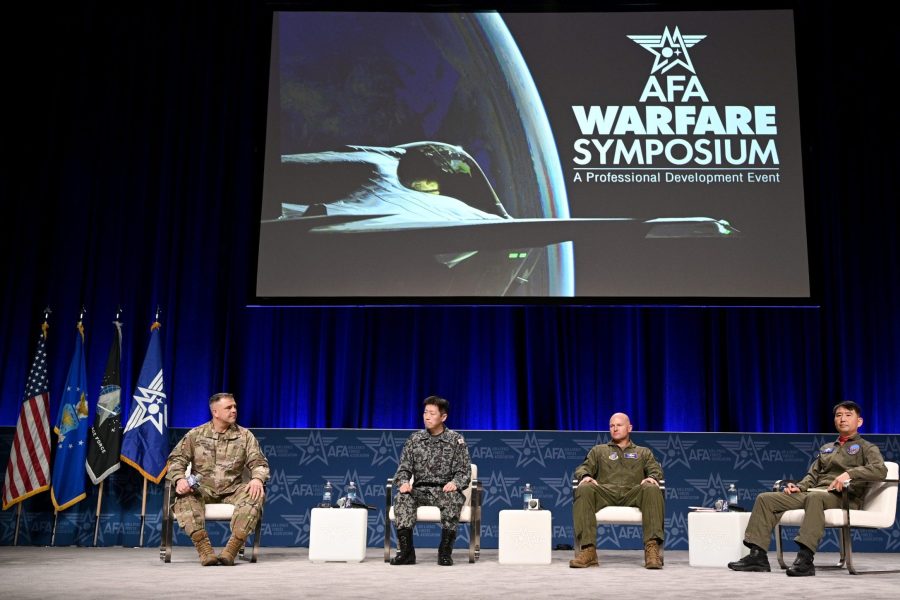
Space Force’s Japan Component Expected to Activate in 2024 (Image Credit: airandspaceforces)
AURORA, Colo.—Top military space officials from Japan and the U.S. said at the AFA Warfare Symposium that they anticipate the U.S. Space Force will stand up its new component in Japan this year.
“I think we have everything in place,” U.S. Space Forces Indo-Pacific commander Brig. Gen. Anthony J. Mastalir said during a media roundtable. “It’s going through the staffing process right now. I want to have that component activated this year.”
The commander for the new U.S. Space Forces Japan has already been selected, and that individual will be “available this summer,” Mastalir said.
“Everything is green-lighted at this point, it’s just a matter of getting it through, getting everything approved, and selecting an activation date.” he added.
Col. Kimotoshi Sugiyama, commander of Space Operations Group for the Japan Air Self Defense Forces, also told Air & Space Forces Magazine that he is “expecting it very soon.”
The development comes after Chief of Space Operations Gen. B. Chance Saltzman said last September while in Japan that a Japanese component was under consideration.
The establishment of a U.S. Space Forces Japan would mirror the activation of U.S. Space Forces Korea, which took place at Osan Air Force Base in December 2022. Both are components to subordinate combatant commands—U.S. Forces Japan and U.S. Forces Korea, respectively. U.S. Space Forces Indo-Pacific is a component under the unified combatant command of U.S. Indo-Pacific Command.
All these components are necessary for presenting space forces to combatant commanders in the Indo-Pacific “where the pacing threat is most acute,” Mastalir said. On top of China’s increasing investment in the space domain, North Korea claimed it successfully launched a surveillance satellite last year, and Russia remains a dangerous nuclear-armed threat.
“The current security situation surrounding Japan is really severe and complex,” Sugiyama said during a panel discussion.
“Our greatest concern in the space domain we recognize is an attack against a satellite,” he added. “It’s vital, not only communications, but navigations and so forth. Our society heavily relies on space capability, we have to ensure the safe usage of it. So, the attack against the satellites or interference is really a concern, we have to closely watch it.”
Col. Park Jong-seo, air attaché of the Embassy of the Republic of Korea pointed to the vulnerable Demilitarized Zone of South Korea as a key area for monitoring threats and provocations by North Korea—and stressed cooperation with U.S. Space Forces Korea to do so.
“We need to get close, real-time surveillance activities around the DMZ area,” Park said.
In December, the U.S., Japan, and South Korea established a real-time missile detection mechanism was established, following the trilateral agreement between President Joe Biden and his Japanese and Korean counterparts at Camp David, Md., in August.
Mastalir cited the importance of space in that mechanism.
“That’s another reason why I want to have a component in Japan,” Mastalir said. “Because that level of information sharing and data sharing is going to be very powerful, so that we’re all seeing the same picture when it comes to missile warning and missile defense.”
Sugiyama also highlighted the importance of continuing to share information in the space domain.
“There’s no border in space, so we share the same outer space and we are closely watching what’s going on in space,” Sugiyama said. “By doing that, it can lead to better deterrence, I believe.”








